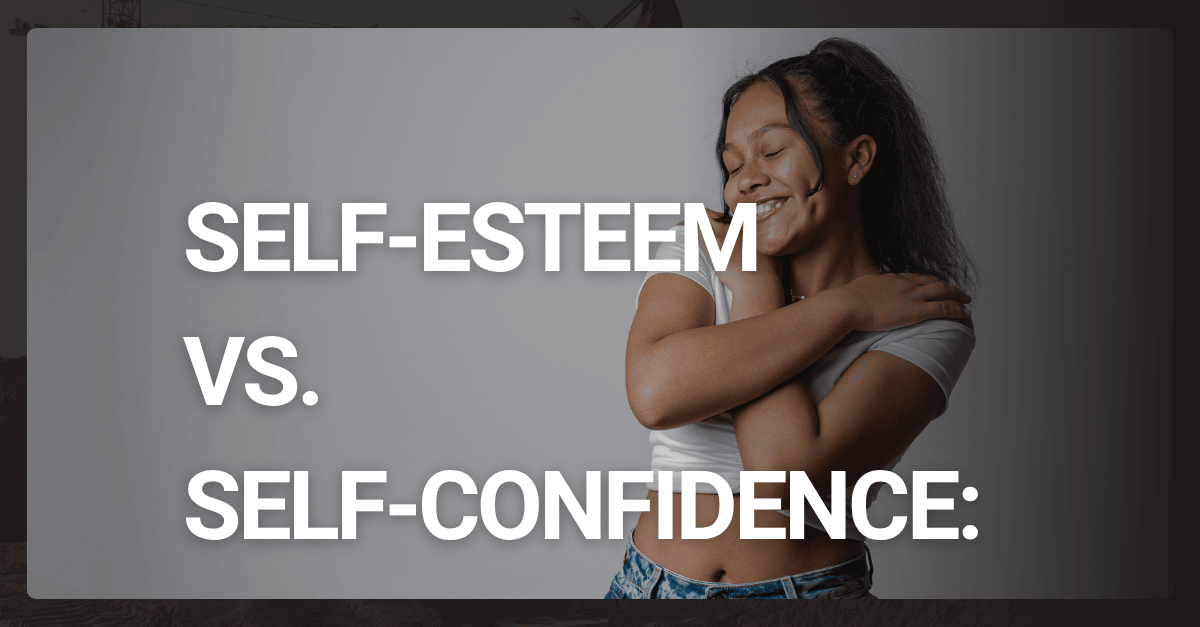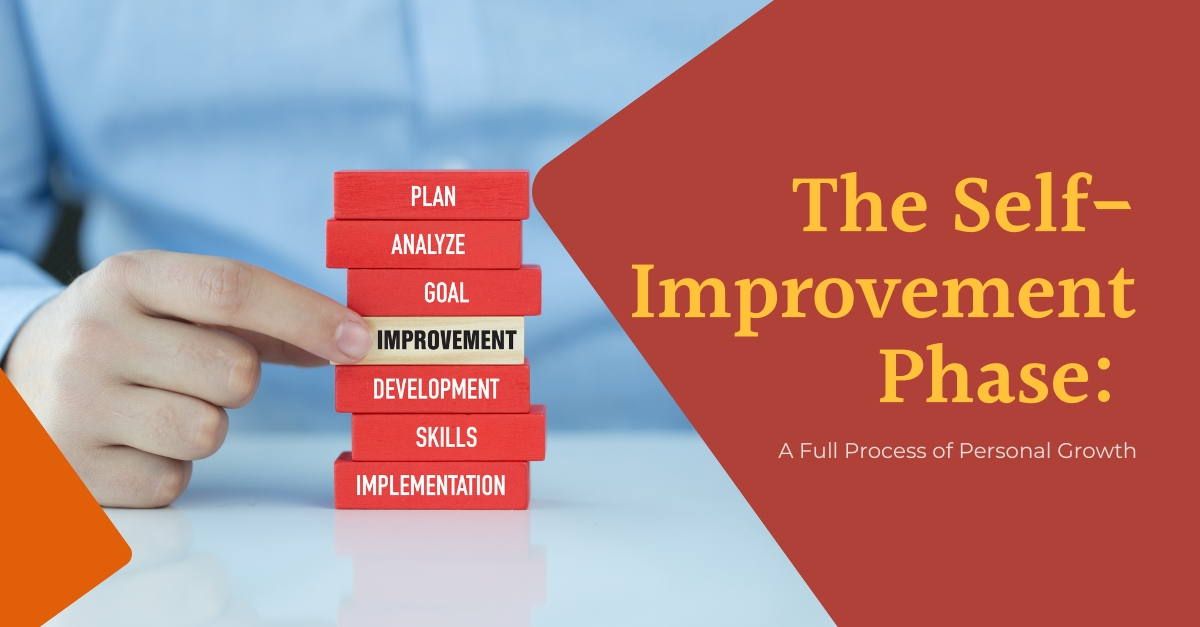Self-Esteem vs. Self-Confidence: Self-esteem and self-confidence are key elements of mental and emotional well-being, often mistaken for one another. However, they represent distinct concepts that influence how we view ourselves and our ability to succeed. Self-esteem refers to the overall value we place on ourselves, reflecting our internal sense of worth. It is shaped by our experiences, relationships, and self-reflection. People with high self-esteem generally feel good about who they are, while low self-esteem can lead to feelings of inadequacy or self-doubt.
On the other hand, self-confidence is the belief in our ability to succeed in specific tasks or situations. It is more external and context-specific, meaning that a person may be confident in one area of life, like their career, but lack confidence in other areas, such as social interactions. While self-esteem provides the foundation for self-confidence, they are not the same. High self-esteem can enhance self-confidence, as believing in your worth often leads to believing in your abilities.
Both self-esteem and self-confidence are essential for personal development. Understanding their differences and how they work together can help individuals improve their mental health, set realistic goals, and lead more fulfilling lives. In the following sections, we will delve deeper into each concept, explore how they influence each other, and discuss practical strategies to build both.
What Is Self-Esteem?
Self-esteem refers to how much value or worth a person attributes to themselves. It is an internal measure of how we perceive ourselves, often shaped by past experiences, relationships, and societal influences. A healthy self-esteem allows individuals to acknowledge their worth and embrace their strengths and weaknesses. On the other hand, low self-esteem may result in feelings of inadequacy, shame, or unworthiness.
What Is Self-Confidence?
Self-confidence, on the other hand, is the belief in one’s abilities to succeed in specific situations or tasks. Unlike self-esteem, which is more global and overall, self-confidence is often context-specific. For example, you might feel highly confident in your professional skills but struggle with self-confidence in social settings. Building self-confidence typically involves learning new skills, gaining experience, and having positive reinforcement.
How Self-Esteem Affects Self-Confidence
Self-esteem and self-confidence are closely linked, though they are separate concepts. High self-esteem enhances self-confidence by fostering a belief in one’s inherent worth and abilities. When individuals value themselves, they are more likely to take on challenges and pursue goals with conviction, believing that they deserve success and have the potential to achieve it. This positive self-view acts as a foundation for confidence, allowing individuals to tackle tasks with a sense of capability.
On the other hand, low self-esteem can hinder self-confidence. Individuals with low self-esteem often struggle with self-doubt, questioning their abilities and fearing failure. This insecurity can prevent them from seizing opportunities, as they may believe they are not capable of succeeding. As a result, their confidence in their skills and potential suffers. Without a strong sense of self-worth, it’s difficult to cultivate the belief that one can succeed, making it harder to build self-confidence.
Therefore, developing self-esteem is essential for fostering self-confidence. By first working on accepting and valuing oneself, individuals can create the mental space necessary for confidence to grow. Strengthening self-esteem through self-compassion, setting achievable goals, and celebrating successes can provide the foundation needed for greater self-assurance and success in various areas of life.
Self-Esteem vs. Self-Confidence: Key Differences
| Aspect | Self-Esteem | Self-Confidence |
| Definition | A person’s overall sense of self-worth. | Belief in one’s abilities in specific situations. |
| Scope | Global and general perception of self. | Context-specific, task-oriented belief. |
| Influence | Impacts overall mental and emotional well-being. | Influences performance and achievement in particular areas. |
| Development | Built through acceptance, love, and respect for oneself. | Developed through experience, skill-building, and successes. |
How to Develop Self-Esteem
Developing self-esteem is a gradual process that involves changing negative thought patterns, practicing self-compassion, and setting healthy boundaries. Below are some strategies to improve your self-esteem:
- Practice Self-Acceptance: Acknowledge your strengths and weaknesses without judgment. Recognize that nobody is perfect, and imperfections are a natural part of being human.
- Set Healthy Boundaries: Establish limits in relationships that allow you to maintain your sense of self-respect. Avoid people or situations that diminish your value.
- Positive Self-Talk: Replace negative thoughts with positive affirmations. Instead of focusing on mistakes, acknowledge your accomplishments and strengths.
- Surround Yourself with Positive Influences: Spend time with people who uplift and support you. Distance yourself from toxic relationships that damage your self-worth.
- Celebrate Achievements: Take time to acknowledge even the smallest successes. Recognizing accomplishments can boost your sense of value.
How to Build Self-Confidence
Building self-confidence involves consistent effort and stepping out of your comfort zone. Here are actionable ways to develop your self-confidence:
- Set Achievable Goals: Start with small, realistic goals that you can accomplish. The feeling of success will boost your confidence and motivate you to tackle bigger challenges.
- Focus on Strengths: Identify your core strengths and leverage them in new situations. When you feel competent in specific areas, your confidence will naturally grow.
- Face Fears: The more you face challenges, the more your confidence will grow. Take calculated risks and step outside of your comfort zone to gain confidence.
- Embrace Failure as Learning: Understand that failure is a part of success. Instead of fearing failure, see it as an opportunity for growth.
- Practice Self-Care: Take care of your physical and mental health. When you feel good physically, you are more likely to feel confident emotionally.
- Visualize Success: Imagine yourself succeeding in the tasks at hand. Visualization helps to prepare the mind for success and builds confidence in your abilities.
The Interplay Between Self-Esteem and Self-Confidence
While self-esteem and self-confidence are separate, they often work hand in hand. Low self-esteem can create doubts that hinder confidence, while a lack of confidence can lead to a negative view of oneself, diminishing self-esteem. For example, if you repeatedly fail at tasks, it may lower your self-confidence, and over time, this could affect how you view yourself overall. It is essential to build both areas in tandem for optimal mental well-being.
READ ALSO: Songs About Personal Growth: An Inspiring Playlist for Self-Improvement
Summary – Self-Esteem vs. Self-Confidence
Understanding the difference between self-esteem and self-confidence is essential for personal development. While self-esteem is a broader concept of self-worth, self-confidence refers to the belief in your ability to succeed in specific tasks. Both are interconnected, and improving one often helps enhance the other. By applying strategies to build both self-esteem and self-confidence, you can unlock your full potential and navigate life with greater resilience.
FAQs (Frequently Asked Questions) – Self-Esteem vs. Self-Confidence
- Building self-esteem and self-confidence is an ongoing process. With consistent effort, noticeable improvements can be seen in a few months.
- Building self-esteem and self-confidence is an ongoing process. With consistent effort, noticeable improvements can be seen in a few months.
- What is the main difference between self-esteem and self-confidence?
- Self-esteem refers to overall self-worth, while self-confidence is the belief in one’s abilities to succeed in specific situations.
- Can you have high self-esteem but low self-confidence?
- Yes, it’s possible. One may feel worthy but lack confidence in specific tasks or situations.
- How does low self-esteem affect self-confidence?
- Low self-esteem can create doubts and insecurities, which may hinder the development of self-confidence.
- Can building self-confidence improve self-esteem?
- Yes, as you achieve goals and face challenges, your belief in yourself grows, which can positively affect your overall self-esteem.
- How can I improve my self-esteem?
- Practice self-acceptance, set healthy boundaries, and surround yourself with positive influences to improve self-esteem.
- What are some daily habits to boost self-confidence?
- Setting small goals, practicing self-care, and stepping out of your comfort zone daily can help boost self-confidence.
- How do positive affirmations help in building self-esteem?
- Positive affirmations replace negative thoughts with empowering messages that help shift your mindset towards self-acceptance.
- What role does failure play in self-confidence?
- Failure is a natural part of growth. Viewing failure as a learning experience rather than a setback can boost self-confidence.
- Can visualization help in building self-confidence?
- Yes, visualizing success prepares the mind to act confidently and can enhance performance in real-life situations.
- How long does it take to build self-esteem and self-confidence?
- Building self-esteem and self-confidence is an ongoing process. With consistent effort, noticeable improvements can be seen in a few months.





